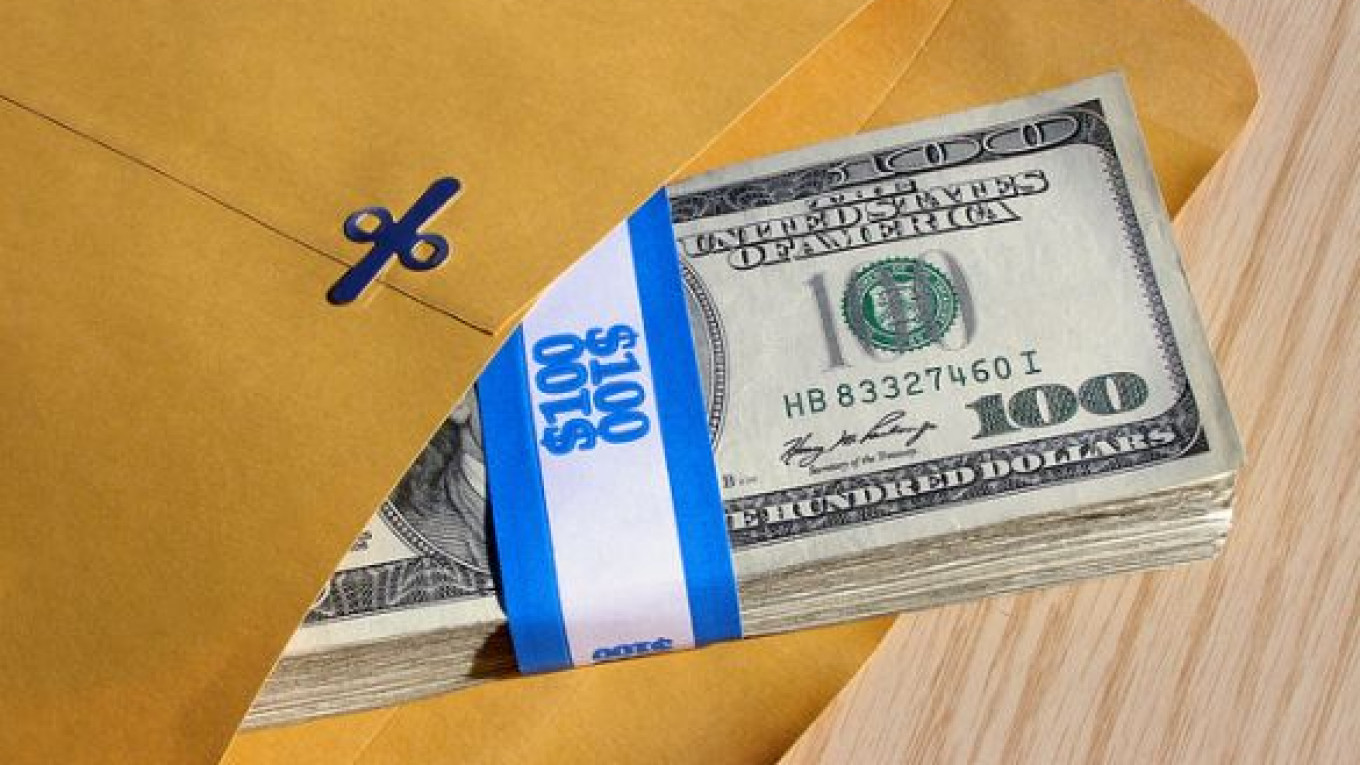A Liberal Democratic Party lawmaker has submitted a bill that proposes harsher sentences for those convicted of taking bribes in foreign currencies, versus those who take payment in rubles.
Sergei Ivanov explained his proposal by saying that the origin and transfers of foreign currencies were harder to track, and that paying bribes in foreign currencies was easier for criminals because foreign bank notes tend to take up less space than equivalent sums in rubles, Interfax reported. The largest bank note in Russian currency is 5,000 rubles, while the largest euro denomination is 500 (22,000 rubles). The largest U.S. bank note in use is $100 (3,200 rubles).
"This complicates solving the crime and impedes finding out and eliminating circumstances that facilitated the commission of the crime," Ivanov said in an explanatory note to his bill submitted on Wednesday.
The bill of amendments to the Criminal Code would equate bribes paid in foreign currencies with bribery committed by an organized crime group or on a large scale, and would envisage similarly tougher sentences, Ivanov said.
The Criminal Code makes bribery punishable by a fine of 25 to 50 times the amount of the bribe or a prison term of up to three years, but large-scale bribes or those involving an organized crime group carry a fine of 70 to 90 times the amount of the bribe and up to 12 years in prison.
Ivanov made news thanks to another bill he submitted last spring, proposing to ban garlic from most private and public buildings as a health and social hazard. After appearing briefly on the Duma's website of pending legislation, the bill was taken down, and Ivanov said it had been an April Fools' joke.
A Message from The Moscow Times:
Dear readers,
We are facing unprecedented challenges. Russia's Prosecutor General's Office has designated The Moscow Times as an "undesirable" organization, criminalizing our work and putting our staff at risk of prosecution. This follows our earlier unjust labeling as a "foreign agent."
These actions are direct attempts to silence independent journalism in Russia. The authorities claim our work "discredits the decisions of the Russian leadership." We see things differently: we strive to provide accurate, unbiased reporting on Russia.
We, the journalists of The Moscow Times, refuse to be silenced. But to continue our work, we need your help.
Your support, no matter how small, makes a world of difference. If you can, please support us monthly starting from just $2. It's quick to set up, and every contribution makes a significant impact.
By supporting The Moscow Times, you're defending open, independent journalism in the face of repression. Thank you for standing with us.
Remind me later.






